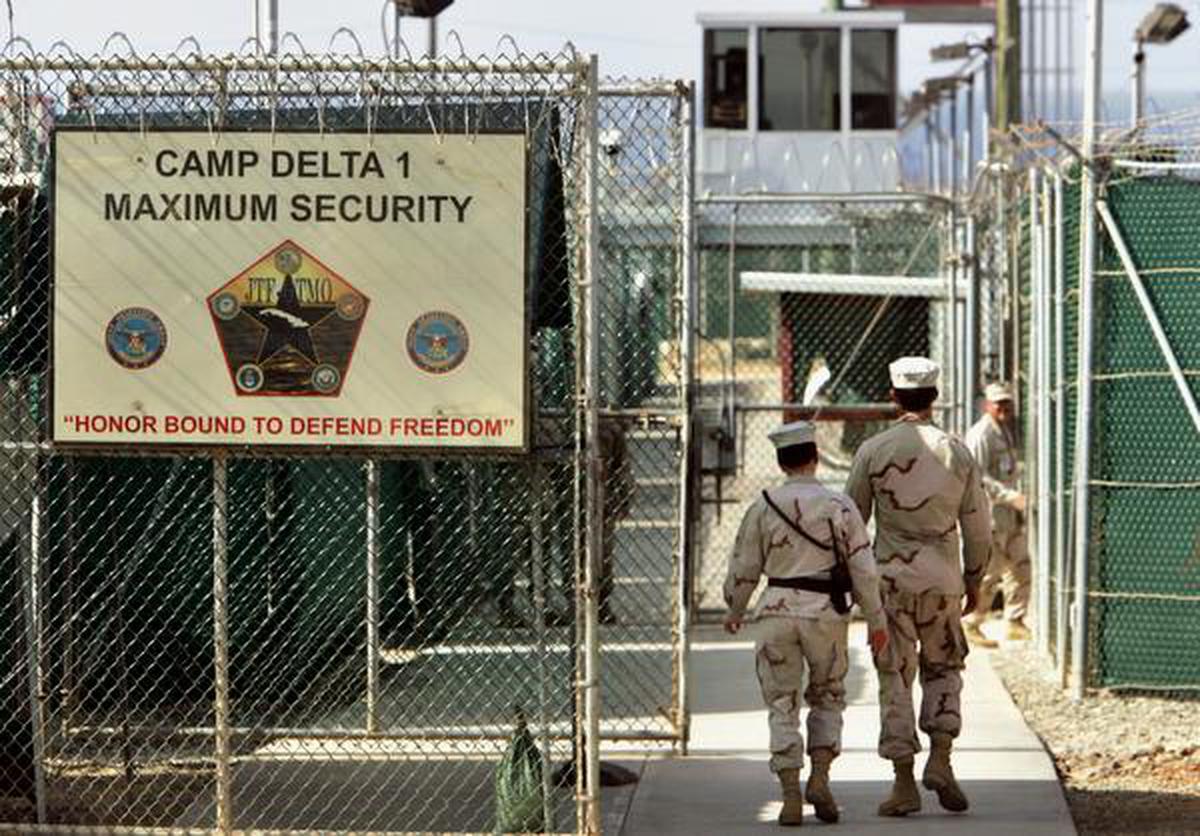Already a subscriber? Make sure to log into your account before viewing this content. You can access your account by hitting the “login” button on the top right corner. Still unable to see the content after signing in? Make sure your card on file is up-to-date.
A plea agreement for the alleged mastermind of 9/11 and his two co-defendants has been thrown out by a federal appeals court in Washington, DC.
Some shit you should know before you read: Back in the early 2000s, Khalid Sheikh Mohammed and his two co-defendants were accused by the US government of orchestrating the September 11, 2001, terrorist attacks that killed nearly 3,000 people. The government alleges that Mohammed was the principal architect of the plot, directing operatives to hijack four commercial airliners (two of which struck the World Trade Center towers, one the Pentagon, and a fourth that crashed in Pennsylvania after passengers intervened). Mohammed was captured in Pakistan in 2003 and transferred to Guantanamo Bay in 2006, along with other detainees, including co-defendants who were also captured overseas in counterterrorism operations. The prosecution’s case includes intelligence gathered during interrogations, though much of the evidence has been clouded by controversy over the use of torture, including waterboarding, during CIA black site detentions. These enhanced interrogation methods have fueled years of legal disputes over the admissibility and credibility of evidence, contributing to the prolonged delays in bringing the case to trial.

Getting into it: In a notable development, a federal appeals court has thrown out a plea deal that would have allowed Khalid Sheikh Mohammed and his two co-defendants to avoid the death penalty in exchange for life sentences without parole and cooperation with victims’ families. The initial plea agreement, which took two years to negotiate and received approval in 2023 from both military prosecutors and the senior official overseeing Guantanamo operations, aimed to resolve one of the longest-running military prosecutions in US history. As part of the deal, the defendants would have answered questions from the families of 9/11 victims—an element seen as critical to offering some measure of closure after nearly a quarter-century of legal delays.
However, then-Defense Secretary Lloyd Austin rejected the agreement just days after it was finalized. Secretary Austin argued that only the Defense Secretary (not military prosecutors or Guantanamo authorities) could authorize a plea that removed capital punishment as a sentencing option. His decision effectively blocked the deal before it could be implemented, sparking immediate legal challenges from the defense team.
Defense attorneys countered that the deal was already valid under military law and that Austin’s objections came after the fact. A military judge initially sided with the defense, upholding the deal and ruling that it remained valid. A military appeals panel later affirmed this decision, signaling that the process had followed proper legal protocol within the military commission system.
Despite two courts siding with the defense, the US Court of Appeals for the District of Columbia Circuit ultimately overturned the plea agreement in a 2-1 decision. Judges Patricia Millett and Neomi Rao ruled that then-Defense Secretary Lloyd Austin had acted within his legal authority when he blocked the deal, noting that decisions regarding the death penalty in such a historically significant case fall solely under the Defense Secretary’s jurisdiction. The appellate court criticized the military judge’s earlier ruling, citing “clear and indisputable errors,” and emphasized that the American public and victims’ families “deserve the opportunity to see military commission trials carried out.”
With the plea deal now void, the case against Khalid Sheikh Mohammed and his co-defendants will proceed toward a full military commission trial at Guantanamo Bay. However, the timeline remains uncertain due to ongoing legal disputes, including challenges over the admissibility of evidence obtained through torture.







